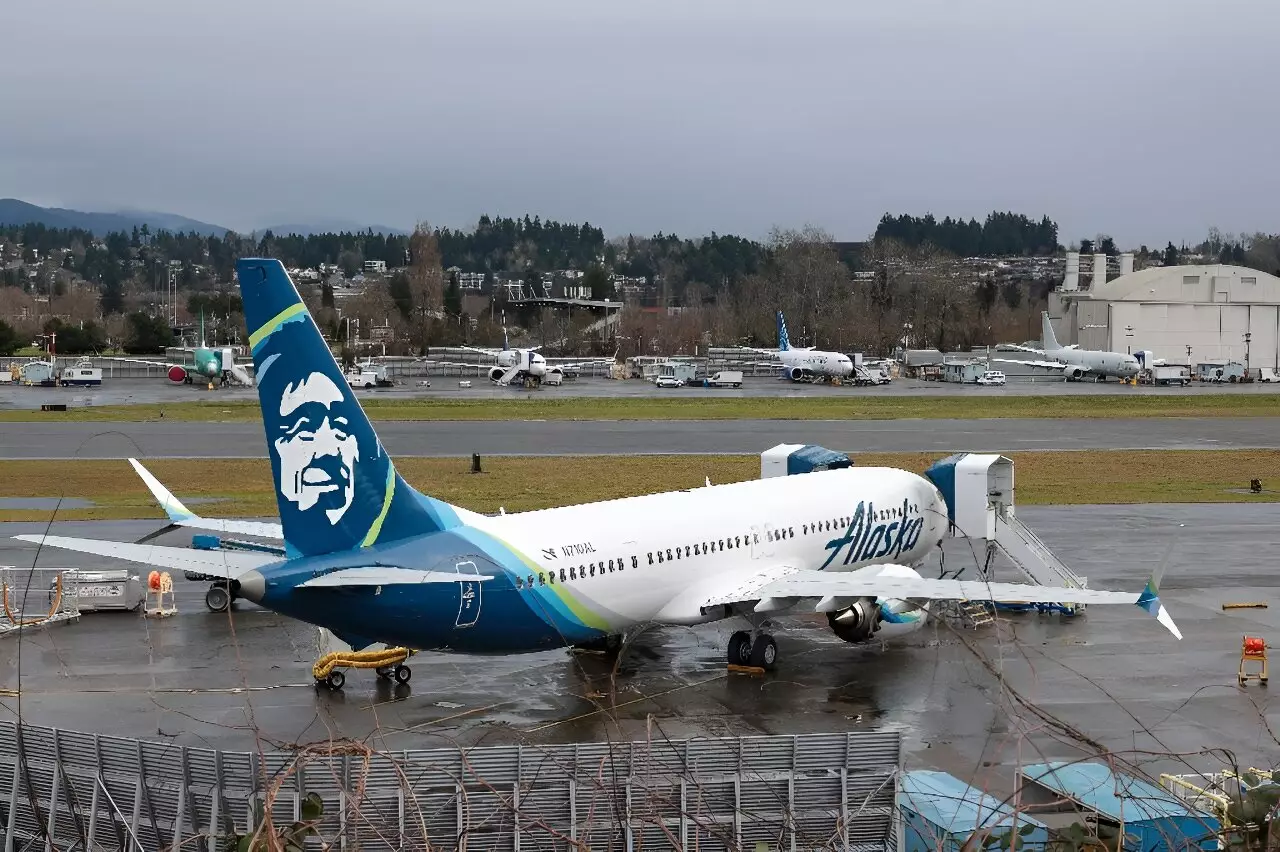The aviation market is currently facing significant challenges due to delays caused by supply chain constraints for both Boeing and Airbus. Boeing has been grappling with difficulties surrounding its star plane, the 737 MAX, prompting a major safety incident on Alaska Airlines in January. As a result, the Federal Aviation Administration (FAA) has frozen Boeing’s production plans, further impacting its delivery timetable. On the other hand, Airbus, Boeing’s European rival, has been dealing with engine issues related to Pratt & Whitney, hindering its production and inspection processes for hundreds of Airbus 320neo jets.
Potential Shifts in Orders
The recent crises have led some of Boeing’s customers to consider alternatives and potential order shifts. For example, Alaska Airlines, a long-time Boeing customer, had been exploring orders for the Boeing 737 MAX 10. However, following the January incident, Alaska CEO Ben Minicucci hinted at the possibility of considering Airbus due to its pending acquisition of Hawaiian Airlines. This development indicates that Boeing’s customers are open to exploring other options that may better suit their needs and priorities.
American Airlines CEO Robert Isom also expressed his concerns about Boeing’s performance and emphasized the importance of reliability and safety. While Isom noted that their airline operates both Airbus and Boeing planes, he stressed the need for purchasing reliable and safe aircraft regardless of the manufacturer. These sentiments indicate a growing demand for consistency in quality and performance within the aviation industry.
Complexities of Changing Suppliers
While exploring alternative plane suppliers may seem like a viable solution, it is not without its challenges. Airlines must secure a spot in the order book of a manufacturer, which requires months and even years of preparation to align supply chains and execute multi-plane orders. Currently, Airbus’ production infrastructure is fully booked until 2030 for single-aisle planes (A320) and until 2028 for long-distance jets (A350). This backlog makes it difficult for airlines to switch suppliers and disrupts their plans for fleet expansion or replacement.
Despite the existing challenges, Airbus continues to receive an influx of orders and maintain a robust order book. In 2023, Airbus garnered net new orders of 2,094, surpassing the previous record set a decade ago. These orders primarily stem from airlines aiming to renew their fleets and meet emission targets by 2050. Airbus plans to ramp up production, aiming for 75 A320s per month by 2026 compared to the current 48 per month. This expansion reflects the optimistic outlook for increased air travel demand in the coming years.
Boeing, on the other hand, continues to face scrutiny and challenges. Apart from the quality control questions following the Alaska Airlines incident involving the 737 MAX 9, Boeing has yet to receive certification for its 737 MAX 7 and 737 MAX 10 models. These certification delays have led to rescheduling and retooling of airline schedules. Despite this, Boeing’s order book remains strong, with over 4,000 orders for the MAX program out of a total of 5,626 plane orders. However, the next available order slots for 737s are projected to be towards the end of the decade.
Supply Chain Constraints and Alternatives
Both Boeing and Airbus continue to face supply chain constraints, a challenge exacerbated by the pandemic. According to Christopher Raite, a senior analyst at Third Bridge, the current supply chain is unable to support the planned production ramp-up for the aviation industry. Additionally, there is a shortage of critical metals from Russia and Ukraine, further exacerbating the supply crunch. These constraints may lead to a situation where airlines are unable to obtain planes on time from their preferred manufacturers.
To mitigate these challenges, one potential solution for airlines is to rent jets rather than relying solely on purchasing new aircraft. This approach offers flexibility and immediate access to planes without being hindered by the manufacturers’ supply chain constraints. The consulting firm AIR suggests that renting jets could be a feasible alternative for airlines facing delays in deliveries.
The aviation market is currently grappling with supply chain constraints and a series of challenges for both Boeing and Airbus. The recent crises and delays have prompted some airlines to consider exploring alternative orders and suppliers such as Airbus. However, transitioning from one supplier to another is a complex process that requires significant preparation and aligning supply chains. Despite the hurdles, Airbus continues to receive a substantial number of orders, driven by airlines’ commitments to fleet renewal and emission targets. Meanwhile, Boeing faces ongoing scrutiny and challenges due to certification delays. The supply chain constraints and critical metal shortages further exacerbate the complexities faced by both manufacturers. As the industry navigates these challenges, exploring alternatives like renting jets may offer a viable solution for airlines eager to meet travel demand and minimize disruptions in the market.


Leave a Reply